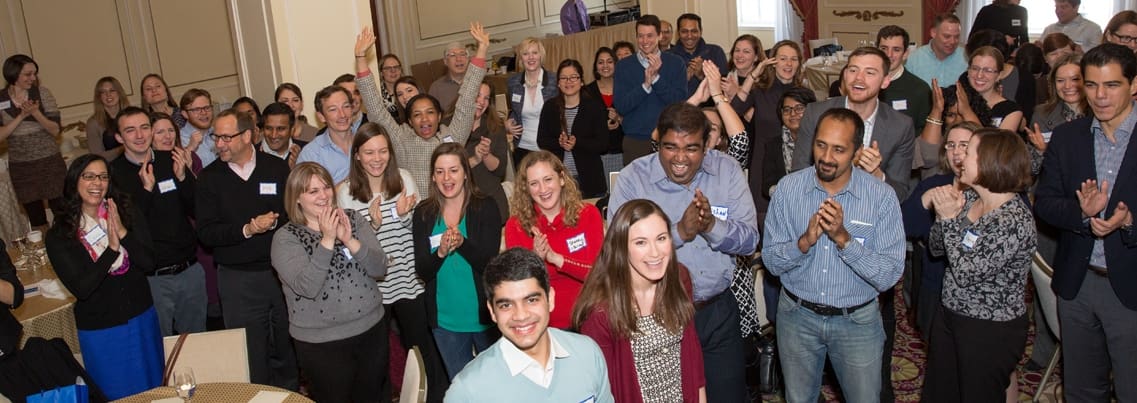We are often asked how FSG started, what FSG stands for, and how the organization has changed over the years. This post gives an overview of FSG’s history.
The Beginning
In 1999, Harvard Business Review published “Philanthropy’s New Agenda: Creating Value,” an article written by FSG’s founders, two friends who met through their children’s school. Combining the strategy expertise of Harvard Business School Professor Michael Porter with Mark Kramer’s background in philanthropy, the article suggested that foundations could increase their impact by adopting more rigorous strategies that created value beyond their grant dollars. Foundations responded with interest, and in 2000, Porter and Kramer started Foundation Strategy Group in Boston, MA, to help foundations develop more effective strategies.
As FSG expanded, we began to offer a wider range of services to a more diverse clientele, including corporations, nonprofits, and governments around the world, so we shortened our name to FSG and opened an office in Geneva, Switzerland. In 2006, we became a nonprofit organization to better reflect our mission. And in 2009, we launched a strategic learning and evaluation division to help build the field through new approaches to evaluation that could better support strategy.
Growing Ideas and Communities
Through our consulting work and partnerships, several key concepts have emerged. In our 2009 Stanford Social Innovation Review article “Catalytic Philanthropy,” we outlined how philanthropy could see the big picture and do more than just give grant money. In 2006, we wrote From Insight to Action: New Directions in Foundation Evaluation, which sought to demystify evaluation for philanthropy. We expanded our view of how to make collaboration more effective against social issues in “Collective Impact,” in Stanford Social Innovation Review in 2011. In the same year, Porter and Kramer published “Creating Shared Value” in Harvard Business Review, identifying the ways that businesses could make a profit and solve social problems at the same time.
Our field-building efforts led to the development of focused learning communities to engage and support practitioners. In partnership with the Council on Foundations, we created CF Insights to benchmark community foundation operating performance. In a similar fashion, we worked with partners such as the Clinton Global Initiative and the Rockefeller Foundation to launch the Shared Value Initiative in 2012. The next year, we created the Collective Impact Forum in partnership with the Aspen Institute Forum for Community Solutions, Grantmakers for Effective Organizations, United Way Worldwide, and many other funders and partners. And in 2017, we began the Impact Hiring Initiative to innovate best practices in hiring, retention, and advancement of Opportunity Youth and other populations facing barriers to employment.
In 2015, we welcomed the addition of new colleagues from the inclusive markets world to establish FSG India, increasing our offerings to include the development of innovations in housing, sanitation, and early childhood education.
Today
Our team of more than 150 people includes members of diverse backgrounds who nonetheless hold to a common spirit of collaboration, dedication to analytical rigor, and sense of urgency about social change. We continue to lead with ideas by publishing reports, articles, and tools, hosting conferences and trainings, and speaking at events around the world.
Above all, we continue to work with clients and partners to unleash the full potential of funders, nonprofits, businesses, and governments to accelerate progress against the world’s most pressing challenges, such as global health, education, and poverty.
And one thing about FSG hasn’t changed: We’re as passionate about reimagining social change now as we were in 2000.
This post was last updated June 2017.

